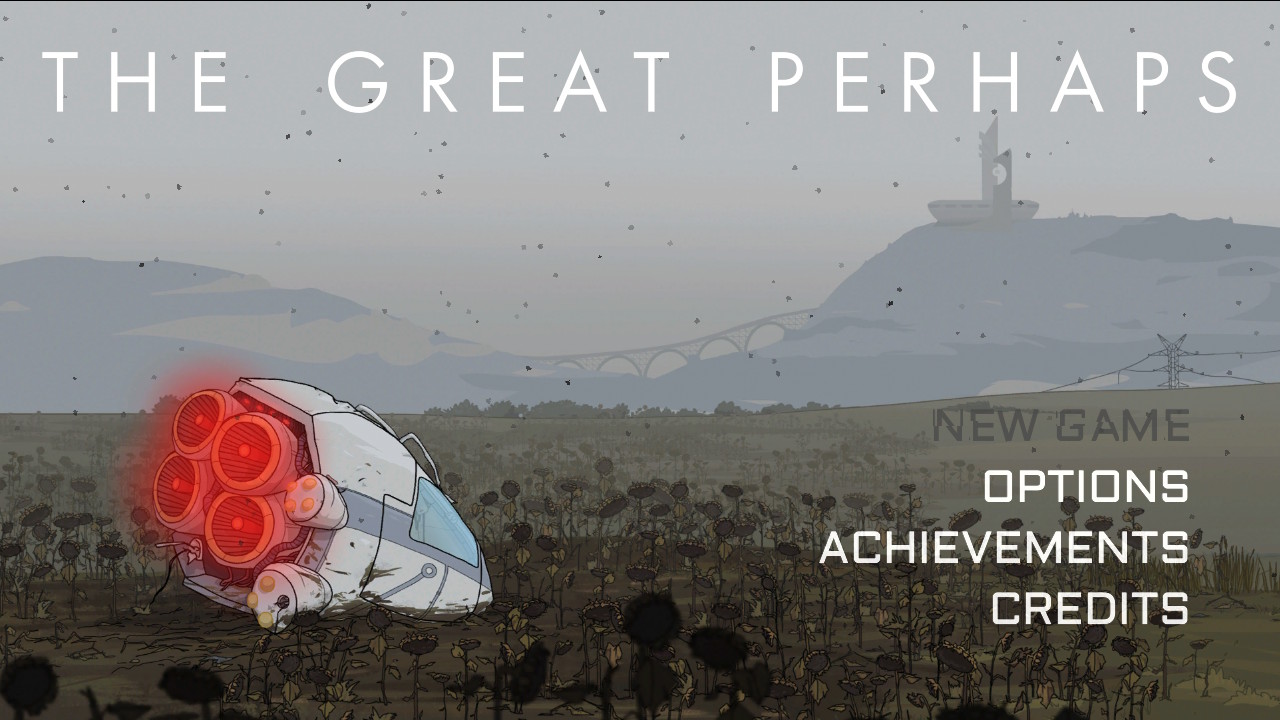[Review] The Great Perhaps – Nintendo Switch
The Great Perhaps
Nintendo Switch
Developed By: Caligari Games
Published By: Drageus Games
Category: Adventure, Puzzle, Platformer
Release Date: 07.10.20
The Great Perhaps for the Nintendo Switch has plenty of quality ingredients needed to make it a memorable experience, but unfortunately it just doesn’t pull everything together into a coherent enough whole to get the desired result. The game takes classic point and click adventure game fundamentals and marries them to light 2D platforming elements for gameplay that is unique, but not altogether satisfying. A brighter spot is the story, which begins with an extraordinarily cool premise that kicks off with the end of the human race – well, not the entire human race, I guess, but most of it.
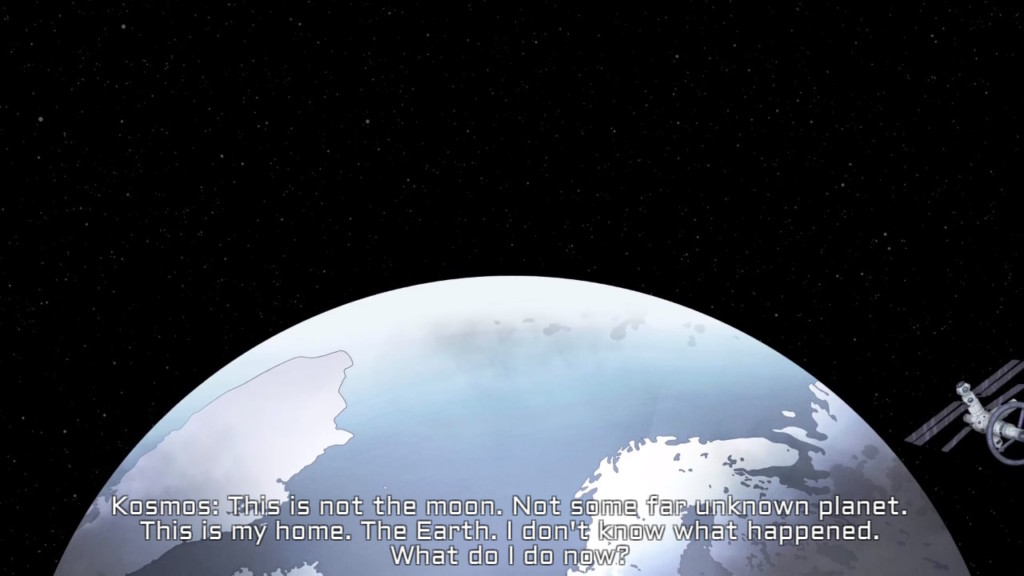
Players take on the role of the last surviving man, Kosmos. He had been part of a crew of astronauts manning a space station orbiting the planet. When an unknown disaster strikes the Earth, most of the crew was called back planetside, but you were left behind in cryostasis just in case. One hundred years later, you wake up orbiting a desolate, deserted planet with only your station’s AI as a companion. At the AI’s urging, you decide to return to Earth and search for survivors – and maybe some answers, while you’re at it. When you make it to the surface, you discover a mysterious monster, and an even more mysterious lantern that allows you to see through time, as well as travel through it. With your newfound powers, you being making your way towards your home, putting the picture of the Earth’s last days together as you go – and maybe learning what you can to make things right.
The story is fine and all – I liked the ending well enough and the writing, while not a revelation, is solid enough to keep things engaging. At the end of the day, it’s a story about trying to find home when you don’t know how or if you’ll ever get there, or if it even exists anymore. No, the story isn’t the issue here; it’s the clunky gameplay. The main gameplay mechanic for the game is the use of your time travel lantern to navigate areas through two different timelines, which is a solid premise. It runs into issues almost immediately, however.
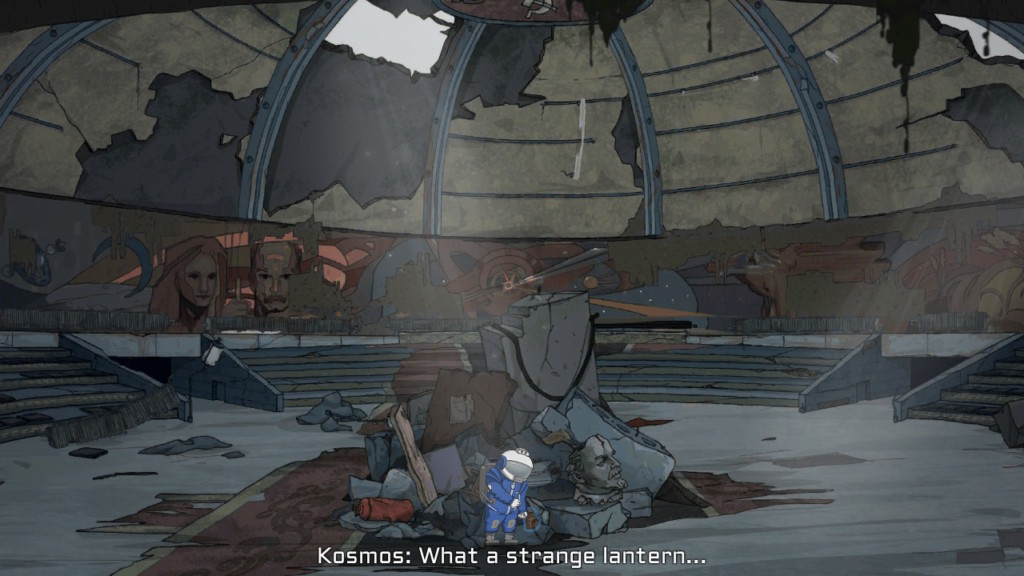
Using the lantern isn’t entirely a consistent experience. It has two functions; you can press the lantern button quickly to turn on a light that allows you to see the area in front of you in another timeline. You can also hold the button down to transport yourself into the other timeline. The big problem is that the amount of time you need to hold that button down doesn’t seem consistent, and sometimes I would hold the button down for several seconds and release it, only for no time travel to occur; it would just turn the light on or off. Now, you can’t time travel if there’s an obstruction in the other timeline, which makes sense, but sometimes when there was no obstruction travel didn’t seem to happen consistently. The game doesn’t require a ton of quick reaction times, but early on I was hit by a train a frustrating number of times because the time travelling feature lacked consistency.
As far as the puzzles you have to solve to continue moving forward, there wasn’t one that I found to be overly byzantine in design; that is to say, while some puzzles are more challenging than others, there was never a time where I felt like a solution was too obscure for a casual player. Movement is simple; walk left or right, or do a short jump. You’ll often have to grab and push items to create a jumping path for yourself. You can also pick up items and throw them, which is necessary for certain puzzles. Everything works well enough, even if the game’s mechanics are a little lacking in excitement.
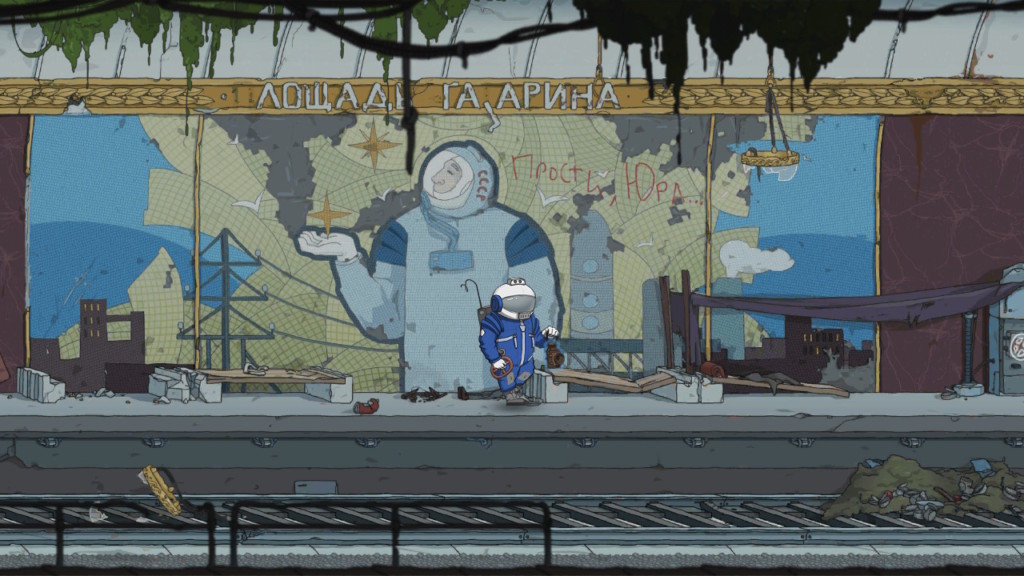
I had a bigger problem with the lack of an inventory; you could only hold one item at a time in your hand, which led to quite a bit of backtracking if a puzzle required more than item to solve. None of the game’s areas are very expansive, but walking back and forth to retrieve one item at a time gets old fast. Having an inventory would probably shorten the game, which to some may feel like a loss of value, but I would argue that in this case the extra time actually reduces the value of the game. All it does is add time for the sake of adding playtime; that kind of padding always feels gratuitous to me.
In its visuals, The Great Perhaps has perhaps its greatest asset. The distinctive, cartoony style of the art is very unique and adds a layer of abstraction to the game’s atmosphere that lends credibility to its offbeat sci-fi tale. It’s not the best-looking game on the market but I would have a hard time believing any other art style could do as good a job complementing this game’s narrative. The soundtrack is fine; the music sets the atmosphere well, and the voiceover performances for the main character and the AI add some much-needed depth to the narration.
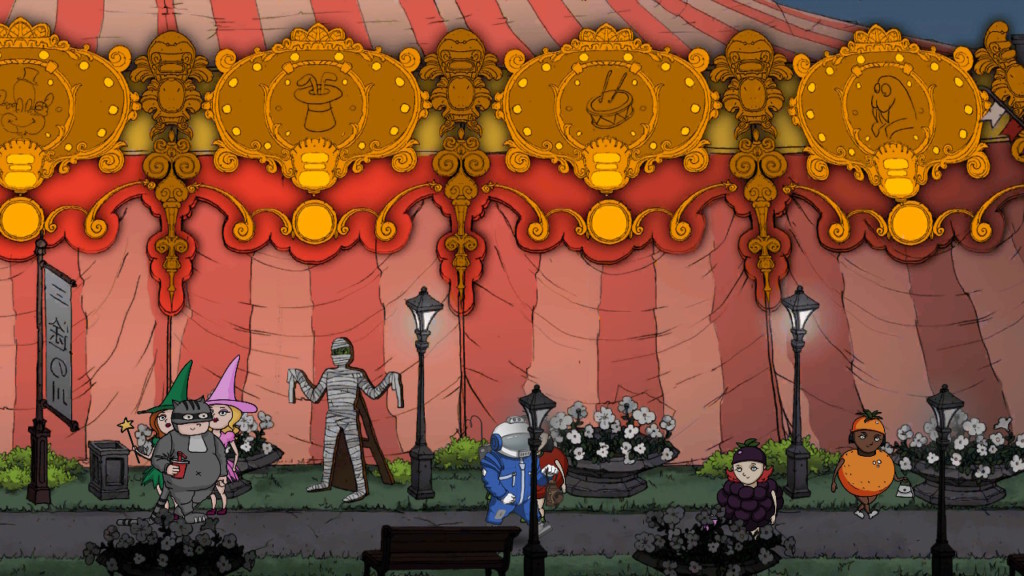
The Great Perhaps isn’t a bad game, but I can’t say it was a great experience either. While it has an interesting story and setting, it doesn’t hold any twists that sci-fi fans probably haven’t seen before. Most of the game mechanics are merely functional without being especially engaging, and the game’s most unique mechanic – time travel – suffers from a frustrating inconsistency. Nice visuals and solid aural presentation punch things up well enough, but in the end The Great Perhaps just adds up to an okay experience.





Buy The Great Perhaps
Digital – $9.99
Follow Caligari Games
Follow Drageus Games

*A game code was provided for review purposes.

